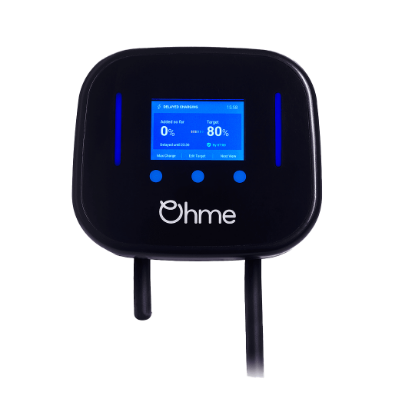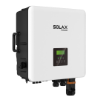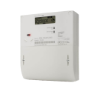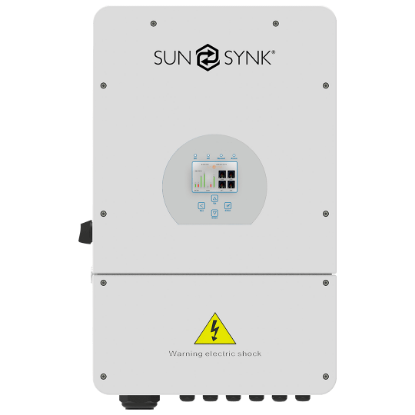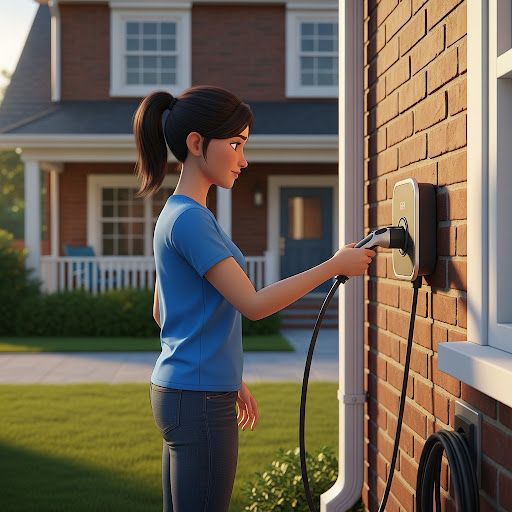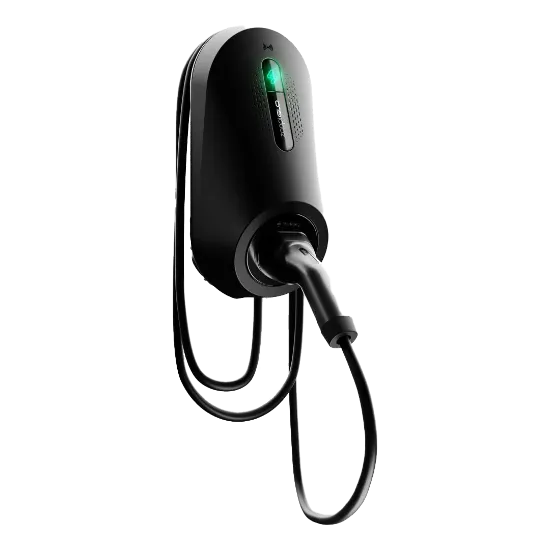As electric vehicles become the new normal on UK roads, many renters are running into the same frustrating issue: how can you conveniently charge your EV at home when you don’t own the property?
Whether you’re leasing a house, a flat with parking, or a rural cottage with its own drive, installing a home EV charger can seem out of reach but it doesn’t have to be. With the right permissions, equipment, and installer, tenants can set up reliable home charging that saves money and adds long-term value to the property.
This guide is designed to help both tenants and landlords understand the process, benefits, and responsibilities involved in fitting an EV charger at a rented home. We’ll explore your legal rights, how to get landlord approval, the types of chargers best suited for temporary living, and how smart chargers can help maximise savings especially if you combine them with a time-of-use tariff or solar panels.
If you're a tenant, a landlord, or a letting agent, this article will clarify everything you need to know to make home EV charging simple, fair, and future-proof.
Can Tenants Install an EV Charger in a Rented Home?
✅ The Legal Situation in 2025
There is no national law preventing tenants in the UK from installing an EV charger at their rental property. However, as the installation involves physical changes to the building such as drilling through walls or adjusting the home’s electrical system you must first get permission from the landlord.
Tenants do not have an automatic right to modify the property, so while the charger itself may be purchased and owned by the tenant, the act of installing it is classed as a property alteration under most tenancy agreements.
Landlord Consent: A Legal and Practical Requirement
To move forward with any installation, you’ll usually need:
Written approval from the landlord or managing agent
Proof of installation by a qualified electrician preferably someone OZEV-registered (Office for Zero Emission Vehicles)
Details on removal whether the charger will stay with the property or be uninstalled at the end of tenancy
If you’re on an assured shorthold tenancy (AST), check your tenancy agreement. It may include a clause forbidding “structural changes” or “electrical modifications” without approval a common sticking point if not discussed early.
💡 Tip: Present the EV charger not just as a tenant need, but as a value-adding upgrade for the property. This is especially persuasive with landlords focused on long-term returns or ESG (Environmental, Social & Governance) compliance.

How to Ask for Permission (and Get a ‘Yes’)
Landlords are more likely to approve an installation when you:
Check Your Tenancy Agreement
Review your contract for clauses on property modifications. You’ll likely need written permission, but this is standard and not a barrier.Be Prepared
Come with a clear plan, including the charger type, safety features (like PEN protection), and installation details. Showing you’ve done your homework builds trust.Offer to Pay
Most landlords expect the tenant to cover the cost. Suggest a fair split if needed and highlight that it's a value-adding upgrade to the property.Highlight the Benefits
Point out that an EV charger can increase property value, attract future tenants, and keep current ones happy – all key reasons landlords say yes.Mention Grants
Inform them about the OZEV grant for landlords – up to £350 per charger installation. Offer to help with the application to make it easy.Clarify Ownership
Agree in writing on what happens to the charger when you move out. Options include leaving it behind, selling it to the landlord, or taking it with you.Use a Certified Installer
Reassure your landlord that you’ll use an OZEV-approved installer for safety and compliance. Evergy can arrange this for you if needed.
Flats and Shared Buildings: Special Considerations
If you rent a flat and park in a communal car park or on the street, things get trickier. You’ll need:
Permission from the freeholder or management company
Access to metered electricity or approval to tap into a communal supply
Possibly a Wayleave Agreement if cabling crosses someone else’s property
In such cases, a smart charger that’s easy to disconnect or one with solar compatibility may make your proposal more attractive.
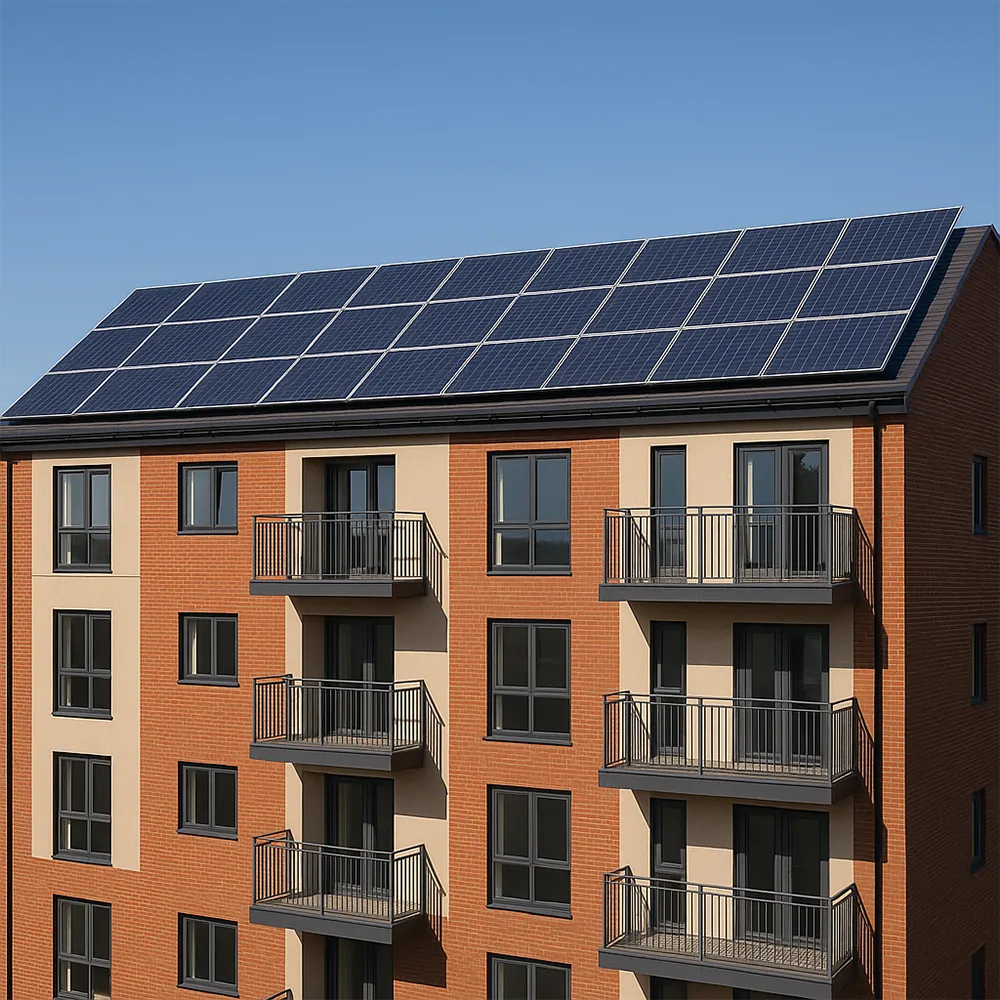
Other Things to Consider
Before installing an EV charger in a rental home, take these practical factors into account:
Off-Street Parking
You’ll need a driveway, garage, or designated parking space to install a charger. If you only have on-street parking, private installation is generally not possible unless the council provides on-street solutions.Electrical Capacity
A qualified installer must check if your home’s fuse board can support a 7.4kW charger. Most newer homes can, but older properties or flats might need upgrades.Planning Permission
EV chargers are usually classed as “permitted development” – no planning permission needed if they’re under 0.2m³ and not within 2 metres of a public road. Exceptions may apply to listed buildings or conservation areas.
What Installation Options Are Available for Renters?
Not every rented property is the same and not every EV charger installation needs to be permanent. Depending on your landlord’s flexibility, your tenancy length, and your parking setup, you’ve got more options than you might think.
Here’s a breakdown of the main installation types and which ones work best in rental situations.
🧱 Wall-Mounted Chargers
This is the most common type of home EV charger, permanently installed on an external wall, usually near your driveway or parking bay. It’s hardwired directly into your home’s consumer unit and requires an electrician to run a dedicated cable.
Pros:
Fast, reliable charging (typically 7kW for single-phase homes)
Compatible with smart tariffs and solar integration
Tidy, discreet installation
Cons:
Considered a structural alteration landlord permission is a must
May not be suitable for flats or properties without dedicated parking
🛠️ Top Recommendation: Easee One the UK’s most installed charger, designed to be future-proof and landlord-friendly thanks to its removable backplate.
🚗 Tethered Chargers vs Untethered (Socket-Only)
Tethered chargers have a built-in cable. More convenient, but harder to take with you when you move.
Untethered units use a separate cable and look neater. They’re also easier to remove at end of tenancy.
🏆 Try the Zappi GLO Untethered if you want solar-ready, smart control, and clean aesthetics.
🪵 Pedestal or Post-Mounted Chargers
If wall-mounting isn’t possible, a free-standing EV charger installed on a pedestal or post could be the answer. These are fixed into the ground (like a bollard) and connected to your home’s fuse box or garage supply.
Pros:
Ideal for detached garages, carports, or shared driveways
Doesn’t affect building walls some landlords prefer this
Cons:
Slightly higher installation cost (trenching may be needed)
May still need planning permission depending on layout
🪵 Note: Evergy offers pedestal mounting kits compatible with most units. Speak to our team for advice on landlord-friendly post setups.
🔋 Solar-Compatible Chargers for Renters
If the property already has solar panels or you’re installing panels with landlord consent choose a charger that can divert excess solar energy to your EV.
🌤️ Recommended: Zappi GLO, Ohme Home Pro, Hypervolt Home Pro 3 smart scheduling, app control, and seamless solar compatibility.

What Are the Costs, Grants, and Tariff Options for Renters Installing an EV Charger?
Renters face unique financial considerations when installing an EV charger but that doesn’t mean it's unaffordable. With grant support, smart energy tariffs, and scalable hardware, home charging can still make strong economic sense.
💷 How Much Does It Cost to Install an EV Charger in a Rental Property?
Costs can vary based on location, charger model, and installation complexity. Here’s a general breakdown:
| Type | Typical Cost (Installed) | Notes |
|---|---|---|
| Basic untethered charger | £800 – £950 | Ideal for renters; easier to remove at tenancy end |
| Tethered smart charger | £950 – £1,200 | Includes app control, scheduled charging, and tariff syncing |
| Pedestal/post install | £1,200 – £1,500 | May require groundwork or trenching for cabling |
🛠️ Tenants typically pay upfront though in some cases landlords may be willing to split the cost if it adds value to the property.
Can Renters Get a Government Grant?
Yes under the EV Chargepoint Grant, private renters and flat owners can claim up to £350 off the cost of installing a home charger.
Grant Eligibility (as of 2025):
You rent your home or own a flat in the UK
You have dedicated off-street parking
You use an OZEV-approved charger (like Zappi, Easee, or Ohme)
Your installer is OZEV-authorised and provides the necessary documentation
🔗 Full guidance available on the UK Government OZEV site.
Why Smart Tariffs Matter More for Renters
Because renters typically pay for their own energy usage (rather than including it in rent), optimising for cost per kWh becomes critical. Smart chargers help by pairing with time-of-use tariffs like:
Octopus Intelligent Go: From 7.5p/kWh during off-peak charging hours
OVO Drive Anytime: Fixed rate for EV charging, regardless of time
Octopus Flux: For renters with solar panels + battery, allows export and import optimisation
📱 Smart chargers like the Ohme ePod or Easee One automatically schedule charging for the cheapest periods.
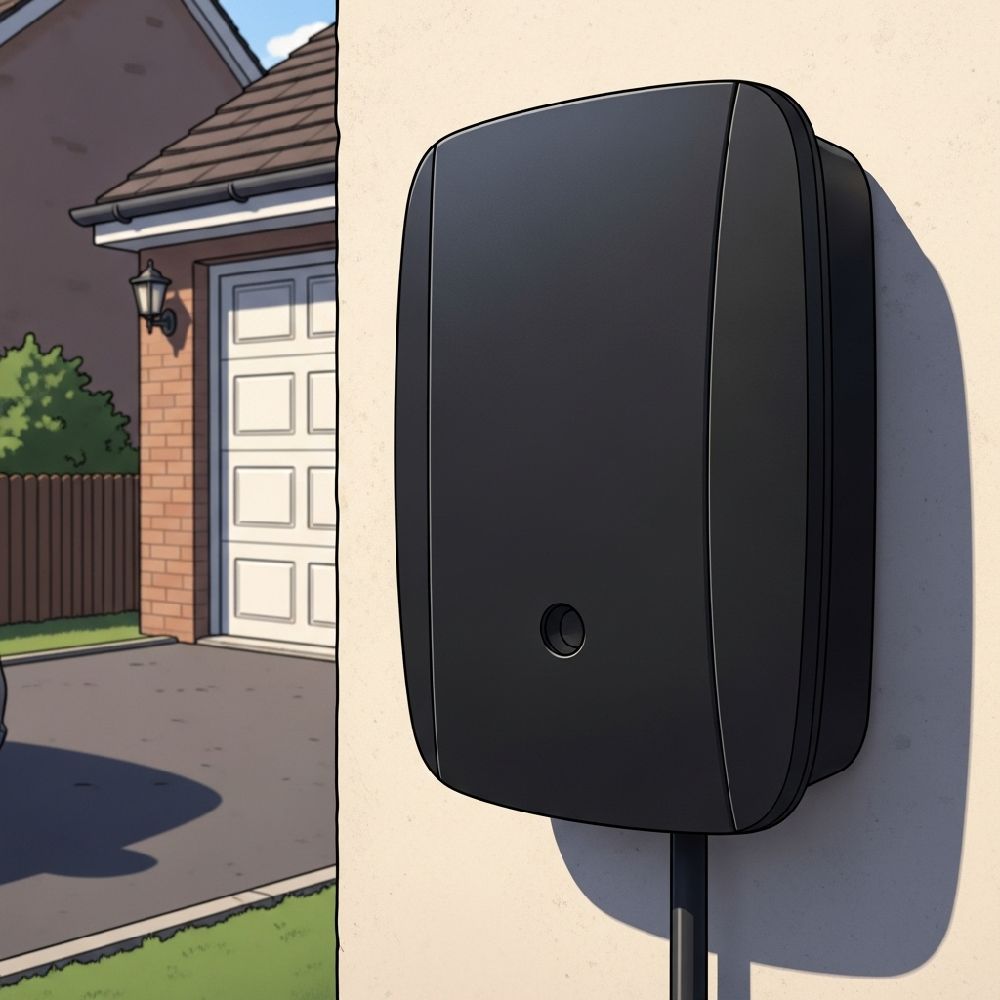
Landlords & Property Managers: Installing EV Chargers in Rental Properties
If you're a landlord or property manager, installing an EV charger isn’t mandatory yet – but it's quickly becoming a sought-after amenity. Here’s what you need to know:
1. Why It’s Worth Considering
No legal obligation yet, but the market is shifting.
Increases property value and appeal, especially as EV ownership rises.
Tenants may stay longer if they feel their home is “future-ready.”
2. Cost and Funding
Installations typically cost £800–£1,200.
Landlords often negotiate with tenants to share or cover the cost.
Government support: OZEV grant covers 75% of costs (up to £350 per charger). Up to 200 claims/year.
Infrastructure grant: Up to £30,000 for wiring multiple bays (ideal for flats).
3. Installation Process
Use OZEV-approved installers.
One-day install with minimal disruption.
Landlords should ensure safety compliance paperwork is issued (Electrical Installation Certificate, building control notification).
4. Safety & Maintenance
EV chargers are low-maintenance and safe.
No legal annual checks required.
Optional servicing every few years is advisable, especially for shared or long-term lets.
Smart chargers with usage tracking are ideal if electricity is included in rent.
5. Ownership Agreement
Have a written agreement with the tenant covering:
Who pays for the charger.
Who owns the charger post-tenancy.
Correcting any damage if the charger is removed.
6. For Multiple Units or Flats
Consider long-term strategy: install a few chargers and pre-wire other bays.
Use infrastructure grants to future-proof properties and boost rental appeal.
7. Get Ahead of Regulation
Anticipate future legal requirements by acting now.
Shows environmental responsibility and modern property management.
Need help? Evergy offers end-to-end support – from product advice and grant applications to professional installation.
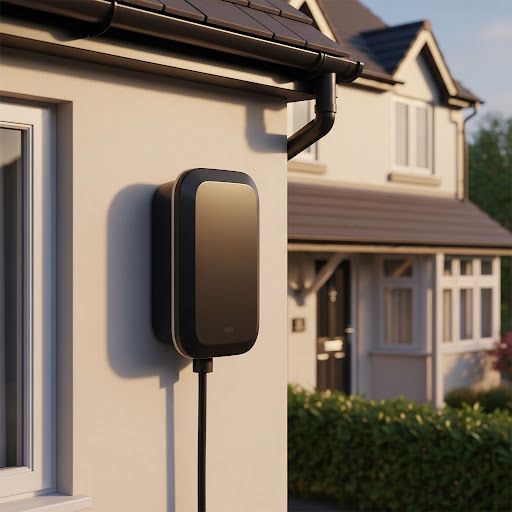
Costs, Practicalities & Who Pays in a Rental EV Charger Install
Installing an EV charger in a rental property is relatively simple with some planning and communication. Here's what to expect:
1. Installation Costs
A typical 7.4kW home charger install in the UK costs between £800–£1,200.
Factors influencing price: charger brand, cable length, electrical upgrades.
Smart chargers cost more but offer useful features like off-peak scheduling.
2. Government Grants
OZEV EV chargepoint grant covers up to £350 or 75% of the cost.
Infrastructure grant offers up to £30,000 for wiring multiple bays in flats or developments.
Tenants can apply, but landlords usually need to be involved.
3. Who Pays?
Tenant Pays: Most common – tenant funds installation and leaves charger in place.
Landlord Pays: Less common, but attractive for “EV-ready” rentals.
Shared Cost: Some split the cost 50/50 or by item (e.g. tenant buys unit, landlord pays for labour).
Always put agreements in writing and decide who claims the grant.
4. Electricity Billing
Usually wired to the tenant’s meter, with costs added to their normal bill.
In all-inclusive rentals, landlords may need to manage usage or choose a smart charger with tracking.
Smart chargers compatible with tariffs like Octopus Go can significantly cut costs.
5. Insurance & Liability
Safely installed chargers are low-risk and generally covered under landlord’s buildings insurance.
Tenants cover damage to their own vehicle or cable under personal insurance.
6. End of Tenancy
Tenants may remove chargers, but it must be done professionally.
Most choose to leave it due to the hassle and low resale value.
A clear agreement upfront avoids disputes.
7. Timescales
Surveys and quotes take 1–2 weeks, with install often complete in one day.
Whole process typically takes 1–3 weeks, faster with Evergy partners.
Why Landlords Should Say Yes to EV Chargers
For many landlords, the idea of installing a permanent EV charger might feel like an unnecessary risk. But in 2025, it’s increasingly becoming a feature that adds long-term value not just for tenants, but for landlords themselves.
📈 1. EV Charging Future-Proofs the Property
The UK will ban the sale of new petrol and diesel cars by 2035, and millions of drivers are switching to electric vehicles ahead of that. By offering home EV charging:
Your property becomes more attractive to prospective tenants
You're less likely to face void periods especially in commuter towns
It positions the property as energy-efficient and environmentally progressive
🏡 According to property experts, homes with EV chargers and solar panels are increasingly seen as ‘high-spec’ by renters and buyers alike.
💷 2. You May Be Eligible for Tax Relief or Grants
If you agree to install the charger yourself (rather than the tenant), you may be eligible to claim:
Capital allowances as a business expense (especially if the property is part of a portfolio)
The OZEV landlord grant (covers up to £350 per chargepoint, up to 200 installations per year per business)
Reduced corporation tax for eco-investments, in some cases
🧾 It’s worth discussing with an accountant if the property is part of a limited company or portfolio.
🛠️ 3. Low-Maintenance & Professional Installations
Modern chargers are compact, safe, and installed by qualified professionals. All units sold through Evergy are:
OZEV-approved
Installed by certified electricians
Covered by manufacturer warranties
This means no unexpected DIY maintenance or ongoing responsibilities once installed, it simply works.
🔁 4. Options to Leave, Remove or Reuse the Charger
You don’t need to commit to keeping the charger permanently:
Leave it in place for future tenants (as a value-adding asset)
Transfer it to another property you own (some brands support reuse)
Agree with the tenant that they’ll remove it and make good any changes
🛠️ Brands like Easee and Zappi make removal and relocation straightforward ideal for landlords managing multiple lets.
Best Home EV Chargers for Rented Properties (UK 2025)
When choosing an EV charger for a rental property, you want something reliable, smart, and suitable for the situation. Both tenants and landlords will appreciate a charger that is safe, user-friendly, and possibly even adds a touch of style to the property. Here are some top charger options we recommend (and sell at Evergy) that fit the bill:
A compact, untethered charger ideal for rental properties. Works with any EV (via user’s own cable) and includes smart features like app control and built-in safety (no earth rod needed). Its stylish design won the 2024 Auto Trader Best Home Charger Award.

This untethered 7.4kW charger automatically charges at the lowest energy rates using your tariff data – ideal for Octopus Intelligent Go. Solar-ready and compact, it’s great for tenants wanting to cut costs while staying green.
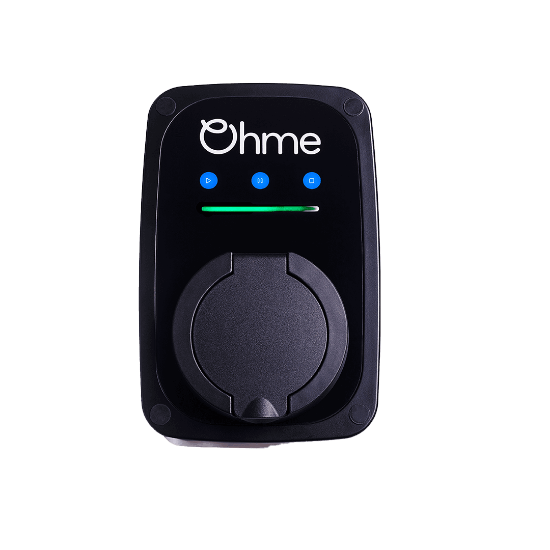
A robust British-made charger that offers great value. It’s weatherproof, untethered, and supports app control, RFID, solar charging, and load balancing. Perfect if the landlord is covering costs but tenants still want modern smart features.
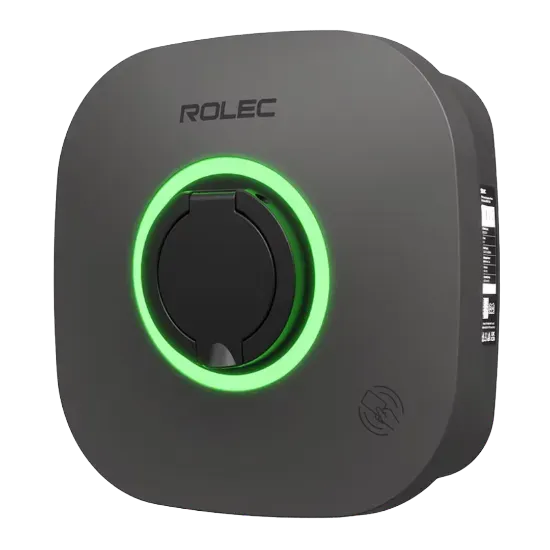
A premium tethered unit designed for high-end homes. Offers elegant custom finishes and hides the cable when not in use. Smart, solar-compatible, and built to impress – ideal for properties where aesthetics matter.

A British-designed tethered charger built for eco-conscious drivers. Zappi GLO prioritises free solar energy, automatically switching between eco and fast charge modes based on your generation. With its intuitive LED glow ring and built-in safety features (no earth rod needed), it’s ideal for homes with solar panels – or those planning to add them.
These are just a few of the options available. At Evergy, we stock all the leading home chargers, and we’ve even put together a comprehensive roundup in our blog of the best home EV chargers UK 2025 to help you compare. Whether you prioritise cost, intelligence, or looks, there’s a charger that fits your needs.
Tethered vs Untethered for Rentals
Notice that we leaned towards untethered (socket-only) chargers in recommendations. That’s deliberate for rental scenarios – an untethered charger is more flexible. A tenant with a Type 1 plug EV (rare these days, but some older models) or another future standard could still use the socket with the right cable. Tethered units are fixed to Type 2 cables (which suits nearly all modern EVs in the UK, true, but it locks that as the interface). Additionally, an untethered charger looks tidier when you move out – there’s no permanently attached cable to worry about. That said, tethered chargers like the Andersen A3 are incredibly convenient (no need to fetch the cable each time). So this comes down to preference. For most, we find untethered works great in rentals.
Smart Features
All the models above are “smart chargers” compliant with UK smart charging regulations. They have apps or interfaces to schedule charging, monitor usage, and prevent unintended charging. This is useful for energy saving – e.g., scheduling your car to charge overnight when electricity is cheap. It can also allow the landlord or property manager some oversight if needed (for example, to restrict use if a tenant moved out, etc., though in practice the tenant usually controls the app). Crucially, smart chargers can help balance load so the home’s electrics aren’t overloaded if the kettle, heater, and car charger all run at once – some will automatically slow or pause charging if the system is under strain. This avoids tripping breakers and keeps everything safe.
When purchasing any charger, ensure it is OZEV-approved (if you’re using the grant) and installed by an approved installer – all the ones listed are eligible. Evergy can supply these units directly, often with next-day delivery in the UK, and we offer installation packages or guidance for your electrician.
Making EV Charging Work in a Rented House
If you’re a tenant, don’t be discouraged by renting – you can absolutely enjoy the convenience of charging your EV at home in the UK, it just takes a bit of cooperation with your landlord. And if you’re a landlord, accommodating your tenant’s EV needs can enhance your property and keep your rental attractive in a changing market.
Communication and compromise are key
Start the dialogue early, come prepared with information and solutions, and try to see it from both sides. A tenant naturally wants easy, low-cost charging (nobody loves relying on public chargers for daily needs), and a landlord wants to protect their property and investment. Fortunately, installing a quality EV charge point can satisfy both: the tenant gets cheap at-home charging, and the landlord gets a property upgrade largely financed by someone else (or aided by grants) and a happier, longer-term tenant to boot.
As EV adoption grows, having charging capabilities at home will shift from a luxury to a necessity. Forward-looking renters and property owners who collaborate now will reap the benefits. The technology and support systems – from smart chargers to government grants – are already here in 2025 to make it easier than ever.
Evergy is here to help every step of the way
We’re passionate about enabling clean electric driving for everyone, whether you own or rent your home. Our team can advise on the best chargers for your situation, provide competitive pricing on units like the Easee One, Ohme ePod, Rolec, Andersen and more, and coordinate professional installation anywhere in the UK. We’ve also got plenty of experience helping customers navigate OZEV grants and permissions, making the process as smooth as possible.
If you’re ready to move forward or just have more questions about rented property EV charging, feel free to reach out to Evergy. Together, let’s charge up the UK – one home (rented or owned) at a time. Here’s to a future where “Can I install an EV charger in a rented house?” is answered with a confident Yes, you can!
FAQs – EV Chargers in Rental Properties
❓ Can I install a charger without telling my landlord?
No. You must always obtain written permission. Installing an EV charger counts as a structural or electrical alteration, which is likely prohibited under most tenancy agreements without consent.
❓ Who owns the charger me or the landlord?
If you purchase and arrange the installation, you’ll typically own the charger. However, once installed, it becomes a fixture unless otherwise agreed. Make sure your tenancy agreement includes clarity on ownership and removal rights.
❓ Can the charger be removed at the end of my tenancy?
Yes most modern chargers can be professionally removed and taken with you. Some landlords may request that you restore the wall or supply cable route to its original condition.
❓ Is planning permission required?
Not usually. Most home charger installations fall under permitted development. However, if the property is listed or in a conservation area, or you live in a flat with communal land, additional permissions may be required.
❓ Can my landlord benefit from grants too?
Yes landlords can claim up to £350 per chargepoint under the EV chargepoint grant for landlords. If they manage multiple properties, this can be claimed up to 200 times per year.
Ready to Charge from Home? Let Evergy Help
Whether you're a tenant keen to reduce charging costs or a landlord looking to modernise your rental property, installing a home EV charger is more straightforward than you might think.
Evergy stocks the UK’s best EV chargers for renters, including removable, solar-ready, and landlord-approved options from brands like Easee, myenergi, and Ohme. We also work with a national network of OZEV-approved installers so you're in safe hands.
🔌 Browse our range of EV chargers for renters now
🔗 Explore home chargers
📞 Need advice?
Contact the Evergy team to talk through installation, grants, or landlord conversations.









